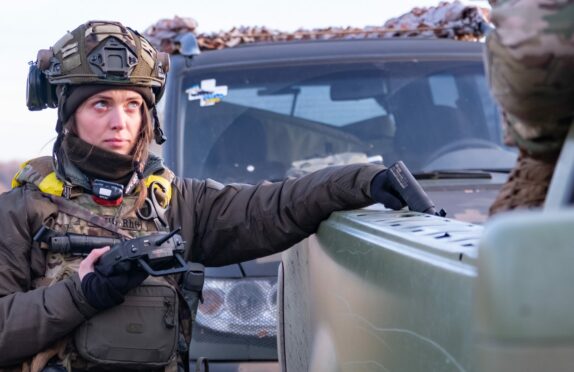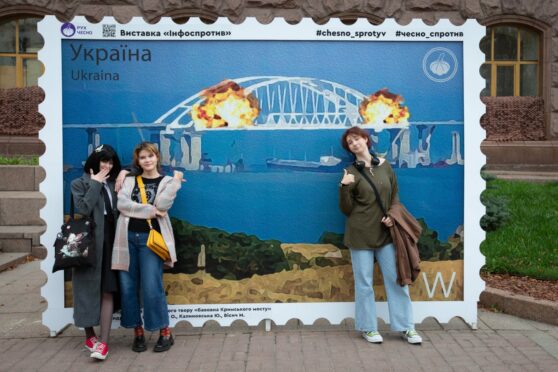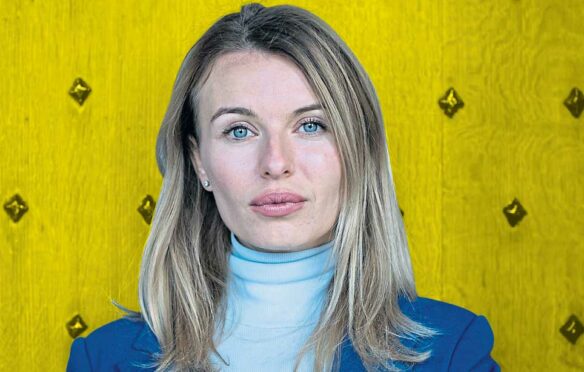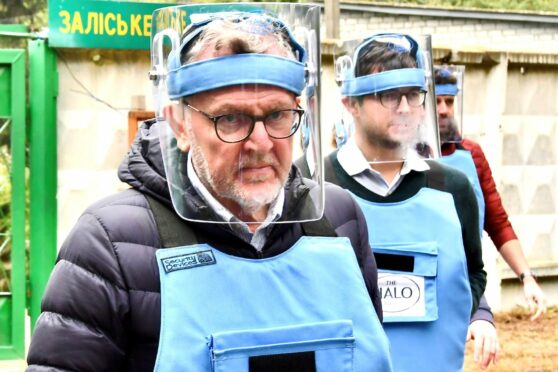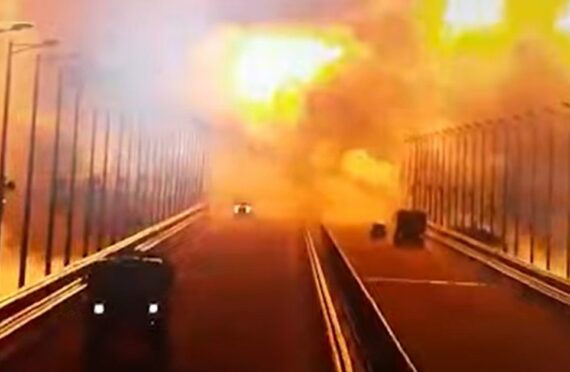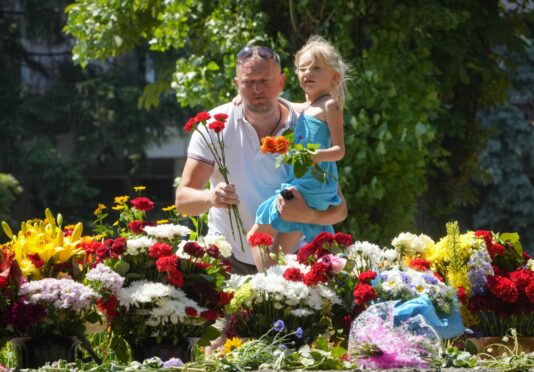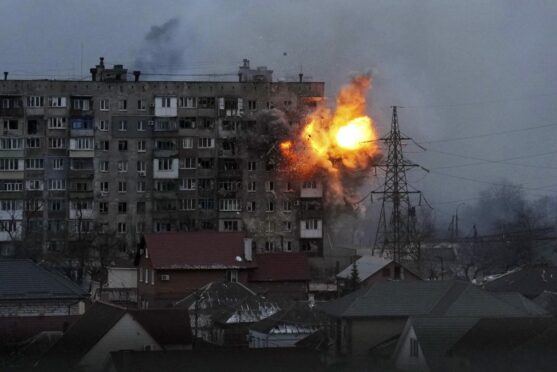
A former investigator yesterday said there was already evidence Vladimir Putin had committed war crimes after ordering the invasion of Ukraine.
Bill Wiley, executive director of the Commission for International Justice and Accountability, who has extensive experience of bringing criminals to justice in Syria, Iraq and the former Yugoslavia, said he thought there was a case that Putin was responsible for atrocities in the Ukraine.
He spoke as a special war crimes investigation was launched by the International Criminal Court (ICC), where he was a former criminal investigator. Led by chief prosecutor Karim Khan, the ICC inquiry is collecting evidence on alleged crimes against humanity and genocide in the Ukraine. Wiley said: “At this point you have the war crime of targeting civilians and civilian objects.
“We tend not to look at specific strikes as a general rule. We look at patterns because it’s very hard to build a case around a specific shelling incident, its almost impossible, unless you get good evidence that they were actually trying to hit that.
“They are throwing so much munitions into some of those built-up areas that I think hospitals, schools, kindergartens, they just get hit along with everything else.”
He said that Russian forces had reverted to the Soviet doctrine of bringing very heavy firepower to bear against defending areas without regard to the presence of civilians in those defending areas.
“The potential for criminal use of that firepower is effectively baked into the doctrine,” he said.
Wiley said any use of chemical weapons – something commentators fear is increasingly likely – would be a war crime: “We call it an absolute liability offence. Chemical weapons, their use, even if you don’t actually kill anyone, it’s unlawful, since the 1920s.”
As to whether Putin would ever be brought to trial, he said there were many precedents – Saddam Hussein in Iraq, Charles Taylor in Liberia, Slobodan Milosevic in Serbia, but added: “Putin might go but it’s not a revolution, so you have lots of the old crew still in place, and Putin, to the extent that he is criminally culpable, he is not alone. There’s a lot of guys in the chain of command between him and let’s say the crime scenes, who are also criminally culpable, so it’s domestically not going to be in anyone’s interests to turn him over, even if he has lost power.
“I don’t rule it out. At this point, two weeks into the war, it’s hard for me to envisage that in Russia right now. If you actually want to see someone in the dock, in The Hague at the ICC, build cases against some unknown mid-ranking guys, and then you keep those arrest warrants sealed, and when those guys start to travel again, with their wife on vacation, that’s when you get them, that’s how you actually get someone sat in the court.”
Lawyer Susan Kemp, another former ICC investigator, said putting Putin in the dock could not be ruled out: “It is possible he will be brought to justice. It may be an extraordinarily big challenge but it doesn’t mean to say one doesn’t try.”
Earlier this month former UK prime minister Gordon Brown called for the creation of a special tribunal to investigate the specific crime of aggression, similar to that set up during the Second World War in 1942 that led, at the end of the conflict, to the creation of an International Military Tribunal and the Nuremberg trials.
Kemp, who is based in Edinburgh, said: “While the ICC can investigate war crimes, and potentially crimes against humanity committed by any party to the conflict, they can’t investigate the crime of aggression – the invasion itself – because they don’t have jurisdiction. This is why there are calls for another Nuremberg-style tribunal to try Putin for the invasion itself which is a crime under international law.”
She said evidence linking leaders to specific incidents would be needed to prosecute a military or political leader for war crimes: “It could be witness testimonies, documents, video, audio, telephone taps and physical evidence too. Investigators start from the ground up at the crime scene – for example, in an air strike to identify the weapons systems used and if they were only used by one party. That would be the first piece of the jigsaw. Then you would move through the command chain to find out whether the attack was ordered, or whether it was helped along by superior officers and they had knowledge of it.
“You can build a case if you can link a president to a crime or a pattern of crimes. The pattern will be very important because military commanders and presidents may say it was a rogue unit. But if you can bring evidence showing the same thing was going on under different commanders and in different regions, the implication is there was a plan orchestrated at the highest level.
“The other side of the coin isn’t about evidence, and it’s not about the law. It’s about co-operation from states. Because, in order to get custody of someone like Putin, it is about international relations, it’s about pressure, and what other states are prepared to do.”
Kemp said there were many obstacles to bringing someone like Putin to justice which would likely take a change of regime or for those inside his inner circle to co-operate with the ICC, but she said this would “depend on many other factors and a lot of political and social pressure, from within the country also.”
She said many people had doubted that Guatemalan dictator and de facto president General Rios Montt, complicit in the deaths of 1,771 people, would ever be brought to justice. “The genocide was committed in 1982 and Montt was convicted in 2013. He was an old man of 86. He thought it was going to go away,” she said.
Kemp said investigators would likely look at a number of incidents, including a Russian ballistic missile that struck just outside a hospital in Vuhledar on February 24, killing four civilians and injuring 10; a pre-school nursery in the town of Okhtyrka which was hit by cluster munitions killing three civilians including a child on February 25; and the bombing of a residential neighbourhood in Chernihiv on March 3.
She added that the bombardment and siege of the city of Mariupol could be potentially a war crime, while the attacks on the Mariupol maternity hospital and Zhytomyr medical centres, in which pregnant women, children and doctors were reported to be among the dead and wounded, were “a red flag”.
“Putting a civilian population in a situation of siege is a flagrant violation. Forcing people to starve, or to run out of water or die through illness is not a method of war that is lawful,” she said.

Enjoy the convenience of having The Sunday Post delivered as a digital ePaper straight to your smartphone, tablet or computer.
Subscribe for only £5.49 a month and enjoy all the benefits of the printed paper as a digital replica.
Subscribe